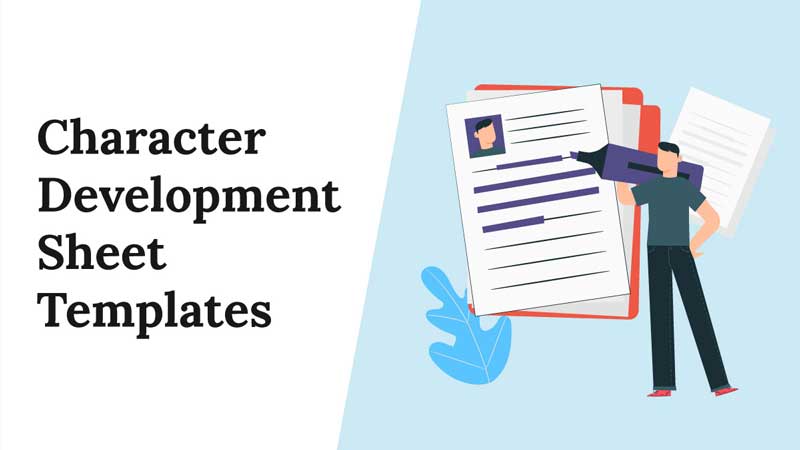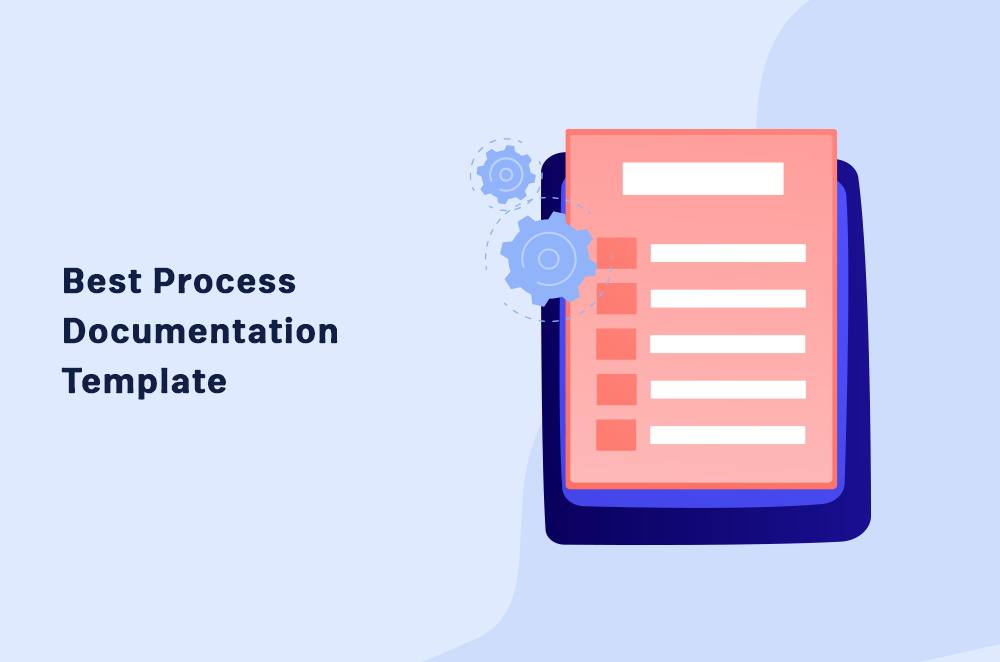Whether you are working on web series, a blog based series, a novel, a screenplay, or a story, it is pertinent that all characters are strong and believable. As a writer, you can’t go without a character development sheet.
This is an indispensable tool where the chart is filled so that you will not just come up with an interesting story but with strong characters that the reader will like.
It is important to note that the core of any character is in the development. Proper development is the foundation of every great and memorable character.
A character development sheet will include many crucial character development questions that will put you on the right track.
What is Character Development?
If you have learned how to write a novel or if you have ever taken any course on how to write a book, I’m sure you’ll know that character development is the sole of any type of novel writing.
It is the crux.
According to Thinkwritten, character development is defined as:
“The process in creating a persona in a story AND the changes this persona goes through during the course of the story.”
A simple definition comes from YourDictionary:
“The process of creating a believable character in fiction by giving the character depth and personality.”
Here is a character development checklist that will help you figure out what is character development in novel writing:

Now that you know what character development is and how it relates to novel writing, it is time to move forward and understand why exactly you need to have a character sheet template.
Character Development Questions
Character development is what every writer should work on perfecting if they want to be a published author.
You need to have a character sheet template that you can use anytime to develop the antagonists, the protagonists, or even the minor characters in your story. This includes the details of their lives and their struggles.
Character development is the act of developing a convincing and unique fictional character by providing them with emotional depth.
This applies to all things you can create a character out of – be it humans, toys, animals, etc. They all need to go through the character sheet template so that they can be better molded and suited to the story.
Character development questions are the best way to go about this. Sure, you can sit there and type out all the information you can think of for your character. But, you will likely miss a lot of important stuff.
But by answering specific, targeted character development questions, you’ll cover everything – even the things you wouldn’t have thought of yourself.
The Benefits of Preparing a Character Development Questionnaire
Whether you create your own character development questionnaire from scratch or use a pre-existing character sheet template, you need it to be comprehensive and in-depth.
If you have a good, all-encompassing character development questionnaire, you’ll be getting the absolute best out of your characters.
There are several benefits of having a character development sheet that you can use over and over again:
- Having a character development sheet will enable you a write on a character that matches your expectation.
- It helps writers to track the growth of a character over time so that the character will continue to grow throughout the story.
- Filling in a character development sheet is a fun thing to do, you will enjoy getting to know your character a little better.
- A character sheet template should inspire and make you think about your character in new ways, devoid of any limitations.
- It will give you an insight into the different ways you will continue to add to your character as the story progresses.
- It will help you stay on track and only add details that are necessary and relevant as your character progresses.
- A character development sheet will help you develop fictional characters that will be realistic to your audience.
- What causes a professional writer to stand out from an amateur is a high level of creativity. With this character development sheet, it will help put your creative mind to work. It will be able to create very original and outstanding characters for any project you are handling.
Having a good, all-encompassing character development template will help you immensely even in the future. Once created, it can be used for any character in any novel and be just as effective.
How to Create a Character Development Sheet
Before creating a character development sheet, you need to consider two aspects of character development. Character development is both internal and external.

Internal Character Development
This is about the drives behind their actions. What are their goals? What motivates their choices and behavior?
External Character Development
As the name implies, this is talking about their experiences on the outside. This could be how they struggle and deal with situations and circumstances. It will also include their transformative experiences.
What to Include in Your Character Development Sheet
You have a book that you need to author, and of course, you will need all kind of characters in the book. So, you need a character sheet template to store all the information you have about each of them so that you don’t mix up the characters in the course of your writing.
You also want to make sure that the characters won’t be confusing and contradictory. These are the reasons why you need a character development sheet. So that you develop each character as expected.
Below are the steps on how to frame your character development sheet.
Step #1: Get to the Root
This is about keeping track of personal details and things about their life. It will include the character’s name, birthday, age, gender, residence, job, and nickname.
Step #2: The Character’s Inner Circle
Let your readers know their direct contact, people they can depend on. It could be friends, their employees, and partners. The people closest to them.
Step #3: Personal Feelings
Of course, your characters will have opinions and skills. Add these to your character development sheet. It could be the character’s habits, talents, attitude, vices, and traits.
Step #4: Include the Character’s Personality
This is one of the most important parts of a character development sheet. A character will always have a personality, and that is what will be pronounced in the story.
So, this should be tackled in a way that even if the figure of the character changes in the course of the story, you can make sure the readers don’t get lost by keeping the character true to their real selves, even though developmental changes.
Step #5: Include Appearance
You should have an appearance section in your character development sheet.
Final Step: Miscellaneous Information
This is making room for all other points that you needed to add but didn’t fit into any of the other categories. You don’t need to throw out such useful information.
You can create a section like this and include the information – it could be anything from language, quotes, a prized possession, likes and dislikes, etc.
Character Development Sheet Tips
There are pertinent questions we need to ask ourselves. Maybe ask them before building a character and filling out the character development sheet. This will help us know what we are working on.
Tip #1: Set Goals
You want to create characters who have goals. Each character should have something there are striving to achieve, even if it is something small.
Tip #2: What is the Driving Force for Each Character?
What will keep the character going? There should be a reason why they will want to get to the very end.
Tip #3: Fear of Failure
This is where you need to internalize your story. There are times where a character feels awful, how will your story progress from there? What will they do about it?
Tip #4: How Will the Character be affected?
Consider how the journey you are creating will affect the character in different ways: emotionally, physically, mentally, will it affect their self-esteem or confidence?
Tip #5: How Will This Bring a Change?
Figure out if the journey will bring any change to the character. Flesh out your thoughts and consider all possibilities.
Character Development Sheet Template
Below is an example of a character sheet template and a list of several character development questions that will help you write a book with perfect characters.
Using the aforementioned steps, you can start to draw up your own character development quetionnaire. You can also copy this sheet and fill in the information accordingly.
Basics
- Character’s full name
- Date of birth
- Nickname if applicable
- Place of birth
- Background
- Place of residence
- Schooling/degrees
- Do they live alone?
- Do they own a pet?
- What kind of pets?
- Income level
- Education level
- Marital status
- Children?
- Quality of relationship with child
Appearance
- Weight
- Body type
- Eye color
- Do they need glasses?
- Skin tone
- Prominent features
- Any other distinguishing marks?
- Face shape
- Who does she look like? (Mom or dad)
- Any chronic health conditions
- Do they live a healthy lifestyle?
- Style of dress
- Hair style
- Do they wear jewelry?
- Natural hair color
Speech and Language
- Accent or dialect
- Pace
- Favorite words
- Speech pattern
- Mannerism
- Common gestures
Habits
- Describe personal habits
- Is he or she prudent?
- What is their morning routine?
- Describe the workday
- Do they enjoy their job?
- What do they have for lunch?
- What do their evenings look like?
- How do they spend their free time?
- Do they usually sleep alone?
- Any recurring dreams?
- What are they really bad at doing?
- Hobbies
Their Past
- Home town
- Was the childhood a pleasant one?
- Earliest memory
- Notable sad moments
- Happiest memory
- Amount of school attended
- Significant childhood events
- Past jobs
- First sexual experience
- Trauma
- Family origin
- Parents marital status – together? Divorced? Remarried?
- Mother’s name
- Mother’s occupation
- Father’s name
- Occupation of the father
- Is the character adopted?
- Siblings
- Relationship with siblings
- In-laws (if married)
Relationships
- Best friend
- Other close friends
- How do they react to friends, strangers, lovers, and spouse?
- Are they successful in their career?
- Are they jealous of other’s success?
- Enemies
- Do they have a mentor?
- Do they tend to judge?
- Are they understanding?
- Who can the character rely on?
- Beliefs
- Is the character a pessimist or optimist?
- What’s the characters personality type?
- Describe their long term goals
- Short term goals
- Who inspires them?
- How does the character react to change?
Favorite Things
- Favorite food
- Do they drink?
- Do they like to read?
- Favorite movie
- Favorite show
- Do they like to go on social outings?
- Favorite music
- Do they play any sports?
Tips on Creating a Strong Character With a Wow-Factor
When write a novel and you are presenting your character to the readers, it is a good idea to take a look at your character development sheet and follow it. There are tons of character development questions that you need answers to in order to get better at character development for your upcoming fantasy novel.

You want to avoid confusing your audience. Rather, you want them to get to know and love your character as much as you do. You can use the following points to achieve this.
- Introduce your character at the beginning of your book.
- Let your readers see your character shortcomings and flaws.
- Let your character be put in a situation where they can be different.
- Create a plot where your character can embrace personal change.
- Show the readers what the new and improved character can accomplish.
- As the story progresses, show your readers who your character is now as opposed to who they used to be.
- Let your character fail sometimes.
- Let emotional stress or passion drive some of their decisions.
- Is the character fulfilled enough to end the plot?
- Finally, where does the character go from there? Keep things open to further evolving and developing. Real people never stop changing, so why should your character?
Character Development Sheets are Flexible
These are just some of the topics you can add to the character development sheet. There is no right or wrong way to do it, the point is getting to know your character and how they will develop as you’ll write a novel or book.
It all comes down to how you want your character to progress. Some fields here are optional, but it is a great starting point in creating your character sheet template. The important thing is that it helps you flesh out your character and turn them into a real person that both you and your readers will understand.


![Scrivener Templates You Can Use [Download Here]](/learn/wp-content/uploads/2021/12/Scrivener-Templates-You-Can-Use1.jpg)









